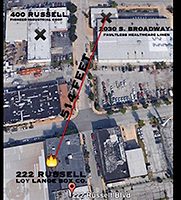What we know about the deadly St. Louis boiler explosion

A boiler explosion on April 3 in St. Louis that killed three people and injured four is raising questions about how the city regulates boiler safety standards.
Here’s what we know about the accident:
Safety Standards
Although Missouri state law requires regular inspections of high-pressure boilers by either a state inspector or an insurance company, St. Louis is exempt from the practice.
That deviation was revealed after the explosion at the Loy-Lange Box Co. launched a large piece of a boiler 500 feet into the nearby offices of Faultless Healthcare Linen, a commercial laundry business.
According to a story in the St. Louis Post-Dispatch, the city instead requires companies to have licensed stationary engineers on site while a high-pressure boiler is in operation. The city administers the licensing process, which includes classwork and a requirement to pass a test.
In fact, one of the accident’s fatalities was Kenneth Trentham, 59, one of three stationary engineers employed by the box company to tend to the business’ two boilers.
A spokeswoman for the mayor’s office said the company was up-to-date with the city licenses, and that Trentham had been authorized for the work since 1996.
Death Toll and Injuries
In addition to Trentham, Tonya Gonzalez-Suarez, 43, and Christopher Watkins, 46, were killed at the laundry facility. The two were married and reportedly filling out paper work on their first day of employment when they were killed.
Of the four who were injured, two remain hospitalized in critical condition.
OSHA Investigation
An Occupational Safety and Health Administration investigation is expected to take months to complete.
Scott Allen, a spokesman for OSHA, called the blast “complicated” and said by law the agency has six months to complete an investigation.




